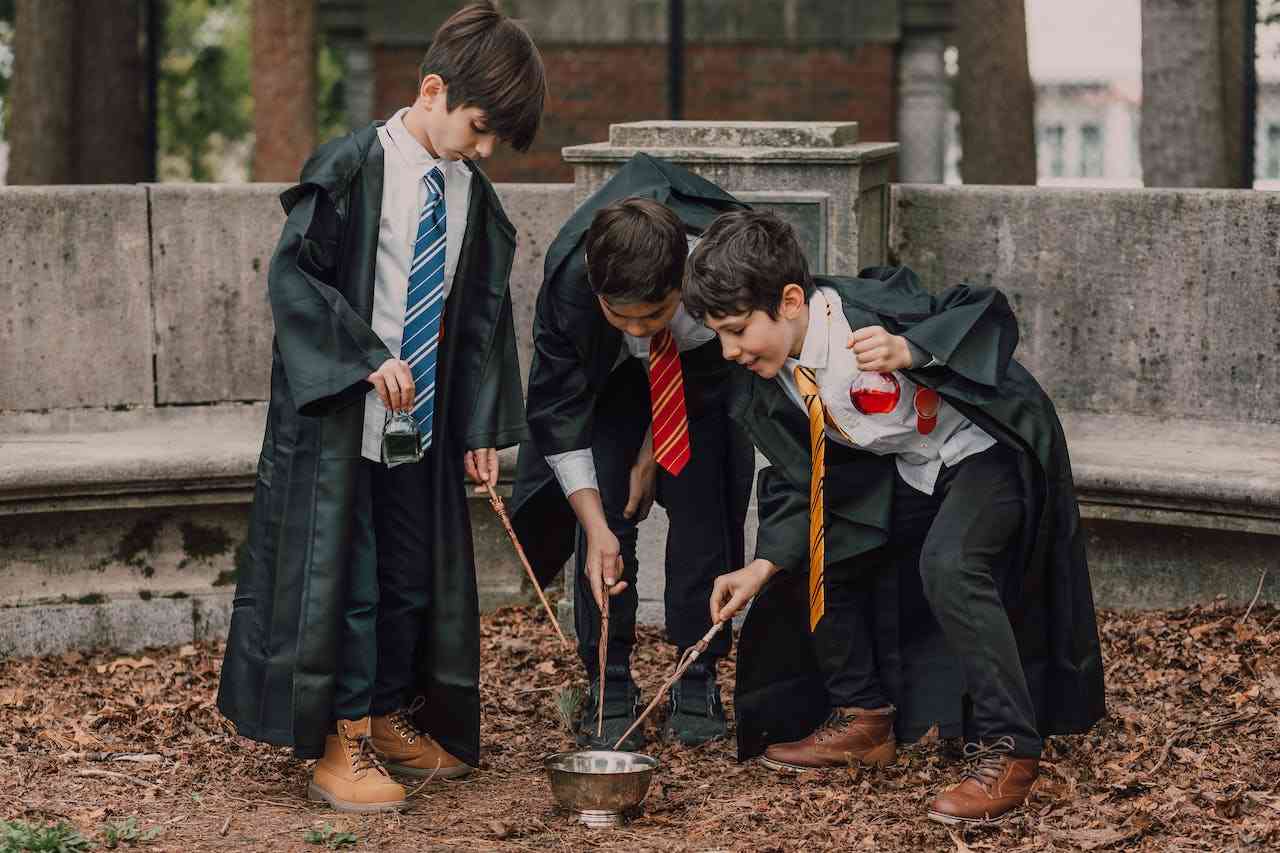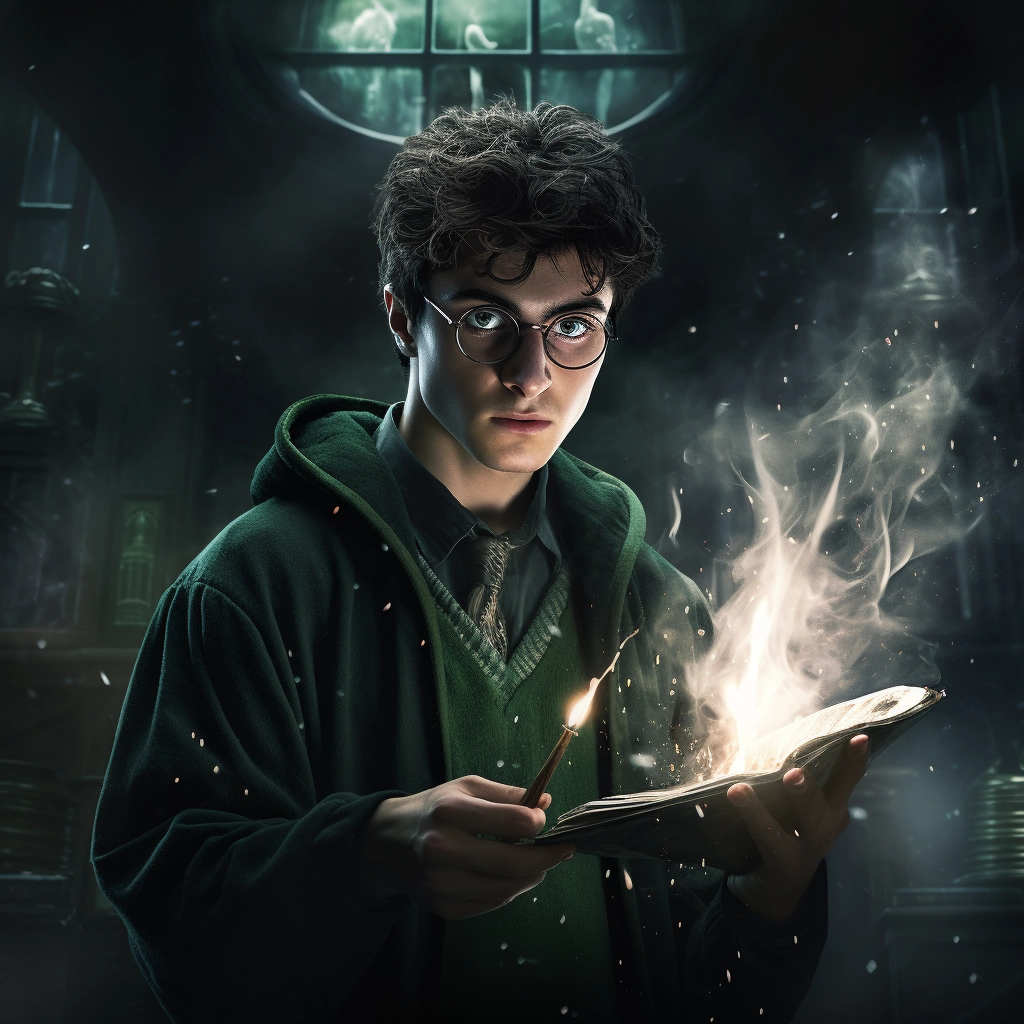Truth & Goodness
Poison on a Plate: What Drives Us to Eat Dangerously?
01 March 2026

It seems that the times when works of popular culture were unwelcome on school reading lists are far behind us. Both in the Western and Polish education systems, contemporary books eagerly read by young people are increasingly used.
Harry Potter by J. K. Rowling, Felix, Net and Nika by Rafał Kosik, the Kajko and Kokosz comic book by Janusz Christa and This War of Mine video game are just examples of works that have entered into the classroom over the last dozen or so years. Yet despite this, older literature still dominates reading lists. This state of affairs is increasingly being criticized by educational innovators, who argue that literary classics can no longer tell us anything new about the world we live in. Is tradition, in the globalized reality of late capitalism, no longer necessary for us?
Krzysztof M. Maj – a game researcher from the AGH University of Kraków and a popularizer of science – has devoted selected episodes of a series of videos entitled „Dla każdego coś przykrego” (“Something upsetting for everyone”) to the above topics. They have been appearing on YouTube since 2019. In them, the researcher pointed to the need to revise the notion of a school reading canon and to expand it to include works from the area of media other than literature – such as films, video games, comics or anime. He has also repeatedly and harshly criticized cultural education based on reading the works of classics, after Artur Sandauer, describing this method as “threshing the same Young Poland straw,” and thus obsessively returning in education to “nineteenth-century ramotkas” (short satirical and humorous works, tinged with a didactic tendency, widespread in the 19th century), which allegedly are unable to tell us anything new about the reality which we inhabit.
You may also like:
For many years, Western researchers have also pointed to the importance of pop culture in the educational process. Already some 20 years ago, a book by John Paul Gee with the eloquent title What Video Games Have to Teach Us About Learning and Literacy came out. Since then, many papers have been published on the subject. Contemporary educators and cultural experts often point to the educational advantages of popular films and series, which can be a starting point for discussion about ideas, values or cultural traditions. The animated movie Coco (2017), by the Pixar film company, seems to be a perfect example of this. It tells the story of teenager Miguel’s adventures in the Land of the Dead, where he meets his long-dead relatives. This film, while it is attractive to a contemporary audience with regards to universal themes such as memory and death, also has the potential to spark a debate about cultural appropriation undertaken by Western artists. Indeed, the plot of Coco refers to the Mexican tradition but presents it from the perspective of creators from outside the Central American cultural sphere, which directs the focus toward ethical issues. These kinds of works can inspire us to explore the world of the past on our own and to understand complex historical processes. Pop culture is also an extremely vivid resonator of social and economic changes, as evidenced by Cyberpunk 2077. The video game by the Warsaw studio CD Projekt RED covers the subject of the possible development of corporate capitalism and post-humanist ideas.
The educational value of popular culture lies primarily in its popularizing and critical potential. Contemporary books, series or video games can contribute to reflection on current social issues as well as universal topics, presenting them in a form attractive to a wide audience. It is worth remembering, however, that – as in the case of culture as a whole – works of pop culture can be both outstanding and mediocre. Some of them distort reality, while others make us think critically about it. Some convey universal truths, others are intended to provide only simple entertainment. The role of contemporary education should therefore be to develop a critical sense in students, which will allow them to creatively ‘read’ their favorite cultural texts and find truth and goodness in them.
Should literary classics, considering the growing importance of popular culture, be summarily ejected out the window?
Expanding the canon of school readings to include works of popular culture and new media is undoubtedly a positive conjecture. However, in a fervor of discussion about reforming modern education toward the future, we often forget that the ideas and values on which modern societies are based come from long past eras. Similarly, one can look at popular contemporary pop culture narratives. In many cases, they would not be what they are if their creators had not looked into the past and found themes there attractive from the point of view of the present. Would the game The Witcher 3: Wild Hunt have been created if it had not been for Mickiewicz’s work and the vision of the “uncanny Slavdom” contained in it? Would Jacek Dukaj have written one of his most important books if it had not been for Gombrowicz’s spirit, which accompanies almost all works of the Polish Sci-Fi creator? Would we have fantasy literature without Nordic sagas?
Tradition is an important part of the cultural heritage of any society. It is a storehouse of values and attitudes that, passed down from generation to generation, determine our perception of the world. Serials or video games should therefore not replace tradition, but help us to think critically about it and to discover in past eras ideas and values that are important from the perspective of our here and now. A good example confirming the above thesis is the latest adaptation of The Peasants by Władysław Reymont, directed by Hugh Welchmann. The film brings out feminist and anti-capitalist themes from the literary original, which are hardly to be found in school studies of the novel by the Polish Nobel Prize laureate. Works of popular culture, making the most of contemporary intellectual currents – feminism or post-colonial studies – have today become important media of cultural memory, bridges connecting the present and the future with its historical roots.
Translated by: Marcin Brański

Do you want to read more articles like this? Visit Holistic News.

Truth & Goodness
01 March 2026


Zmień tryb na ciemny